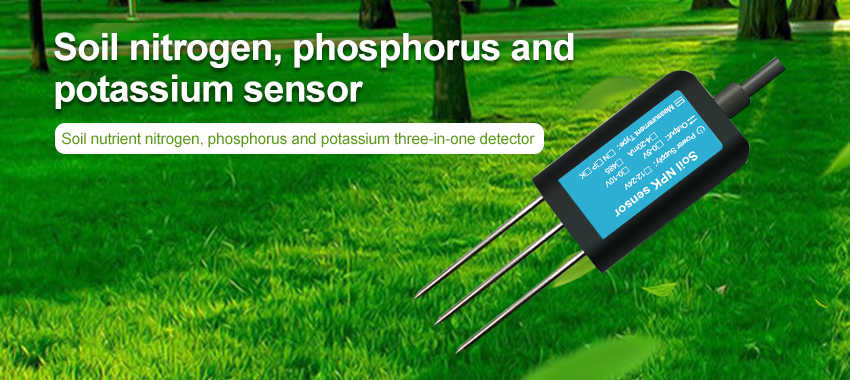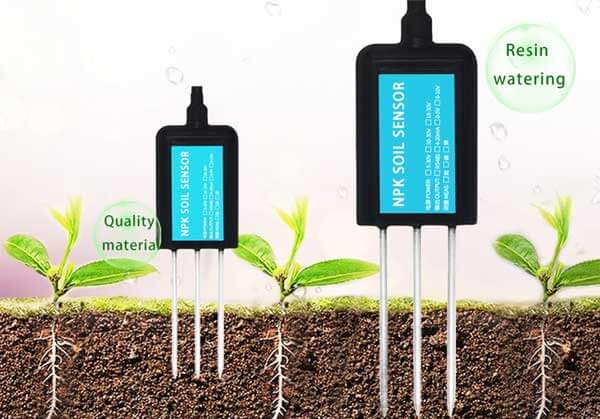Precision farming, also known as precision agriculture or smart farming, is a modern approach that utilizes technology to optimize agricultural practices and maximize crop productivity. Among the various technological advancements, soil sensors have emerged as a game-changer in precision farming. These sensors provide valuable insights into soil conditions, enabling farmers to make informed decisions about irrigation, fertilization, and overall crop management. This article explores the revolutionary impact of soil sensors on precision farming, highlighting their key benefits and applications.

Real-time Soil Monitoring:
Traditionally, farmers relied on manual soil sampling and laboratory testing to assess soil conditions. This process was time-consuming and provided limited information, as it only represented a snapshot of soil health. Soil sensors, on the other hand, offer real-time monitoring capabilities. They continuously measure key parameters such as moisture content, temperature, pH levels, nutrient concentrations, and even soil compaction. This real-time data allows farmers to have a comprehensive understanding of the soil environment and make timely adjustments to optimize crop growth.
Precision Irrigation Management:
Water is a critical resource in agriculture, and its efficient use is crucial for sustainable farming. Soil sensors play a vital role in precision irrigation management. By monitoring soil moisture levels, these sensors provide accurate information about when and how much water should be applied to the crops. Farmers can install soil sensors at different depths within the soil profile to assess water distribution and ensure that irrigation is targeted precisely where needed. This precision irrigation not only conserves water but also prevents over-irrigation, which can lead to waterlogging, nutrient leaching, and crop stress.
Optimal Fertilization:
Proper fertilization is essential for maximizing crop yield while minimizing environmental impact. Soil sensors help farmers achieve optimal fertilization by providing insights into the nutrient status of the soil. These sensors can measure nutrient levels, such as nitrogen, phosphorus, and potassium, allowing farmers to determine the exact nutrient requirements of their crops. With this information, farmers can apply fertilizers more accurately and avoid excessive use, reducing potential nutrient runoff and pollution. Soil sensors also facilitate the monitoring of nutrient levels over time, enabling farmers to adjust their fertilization strategies dynamically.
Early Detection of Problems:
Early detection of soil-related issues is crucial in preventing crop damage and minimizing yield losses. Soil sensors play a vital role in this regard by detecting various soil conditions that could negatively affect plant health. For example, changes in soil moisture, temperature, or nutrient levels might indicate the presence of diseases, pests, or imbalances. By promptly identifying these issues, farmers can take proactive measures, such as adjusting irrigation, applying targeted treatments, or implementing pest management strategies. This early detection allows for timely intervention, reducing the reliance on chemical solutions and promoting sustainable farming practices.
Site-specific Management:
Every farm has its unique soil characteristics and microclimates. Soil sensors enable site-specific management by providing data that helps farmers understand these variations within their fields. By installing multiple soil sensors across different areas, farmers can assess the variability of soil properties and tailor their management practices accordingly. For instance, if a particular area has a higher moisture content, farmers can adjust the irrigation schedule specifically for that zone. Similarly, if certain areas have nutrient deficiencies, farmers can apply fertilizers only where needed, optimizing resource allocation and minimizing unnecessary input usage.
Integration with Precision Farming Technologies:
Soil sensors are not standalone devices but can be integrated into a broader precision farming system. These sensors can be connected to other technologies such as GPS, drones, and farm management software. This integration provides a comprehensive view of the farm, allowing farmers to make data-driven decisions. For example, by combining soil sensor data with satellite imagery, farmers can correlate soil conditions with crop health, identify problem areas, and plan targeted interventions. The integration of soil sensors with automated machinery also enables precise application of inputs, further enhancing efficiency and productivity.

Environmental Benefits:
Adopting precision farming practices with the help of soil sensors brings significant environmental benefits. By optimizing irrigation and fertilization, farmers can reduce water usage, minimize nutrient runoff, and prevent soil degradation. This sustainable approach reduces the impact
